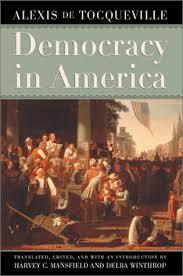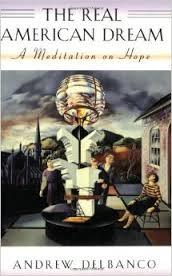Justin Taylor's Blog, page 58
February 2, 2016
Don’t Have Time to Read Books? Try This One Weird Trick
 Sorry for the clickbait headline. I’ll keep this short.
Sorry for the clickbait headline. I’ll keep this short.
Here’s my suggestion: if you don’t have time to read books, start reading chapters instead.
Almost every time I read from a book—whether a novel or a biography or a non-fiction book—I have two things with me: a pen and a bookmark.
I use the pen to underline or circle phrases or make notations in the margins. This makes finding things easier, and I tend to remember things better when I mark them.
I then place the bookmark at the end of the chapter. That creates a small goal: I simply want to finish the chapter. It’s motivation when I’m tired and I see there are just a few pages left—I can press on and get it finished. It allows me to hear the author’s coherent argument (or with biography or fiction, to see the picture that the author wants me to see). It doesn’t give me the entire argument or picture, but it gives me a coherent part of the whole.
If the average person readers 250-300 words a minute, and if the average book page has about that many words, then you can use that as a rough calculation. If you can find 10-15 minutes in your day to read, you can often get through a chapter.
Not every book needs to be finished. But I suspect if you think in terms of reading chapters, rather than reading “whole books” or reading “just a few pages,” you’ll end up finishing more books by thinking this way than the other ways.
Just a suggestion.
February 1, 2016
Is C.S. Lewis’s Liar-Lord-or-Lunatic Argument Unsound?
 C. S. Lewis popularized the argument that Jesus was either a liar or a lunatic or the Lord. But, as Kyle Barton has shown, he didn’t invent it.
C. S. Lewis popularized the argument that Jesus was either a liar or a lunatic or the Lord. But, as Kyle Barton has shown, he didn’t invent it.
In the mid-nineteenth century the Scottish Christian preacher “Rabbi” John Duncan (1796-1870) formulated what he called a “trilemma.” In Colloquia Peripatetica (p. 109) we see Duncan’s argument from 1859-1860, with my numbering added:
Christ either [1] deceived mankind by conscious fraud, or [2] He was Himself deluded and self-deceived, or [3] He was Divine. There is no getting out of this trilemma. It is inexorable.
In 1936, Watchman Nee made a similar argument in his book, Normal Christian Faith. A person who claims to be God must belong to one of three categories:
First, if he claims to be God and yet in fact is not, he has to be a madman or a lunatic.
Second, if he is neither God nor a lunatic, he has to be a liar, deceiving others by his lie.
Third, if he is neither of these, he must be God.
You can only choose one of the three possibilities.
If you do not believe that he is God, you have to consider him a madman.
If you cannot take him for either of the two, you have to take him for a liar.
There is no need for us to prove if Jesus of Nazareth is God or not. All we have to do is find out if He is a lunatic or a liar. If He is neither, He must be the Son of God.
C. S. Lewis, speaking in 1942 (and published in Mere Christianity in 1952), gave the argument its most memorable formulation:
I am trying here to prevent anyone saying the really foolish thing that people often say about Him: I’m ready to accept Jesus as a great moral teacher, but I don’t accept his claim to be God. That is the one thing we must not say. A man who was merely a man and said the sort of things Jesus said would not be a great moral teacher. He would either be a lunatic—on the level with the man who says he is a poached egg—or else he would be the Devil of Hell. You must make your choice. Either this man was, and is, the Son of God, or else a madman or something worse. You can shut him up for a fool, you can spit at him and kill him as a demon or you can fall at his feet and call him Lord and God, but let us not come with any patronising nonsense about his being a great human teacher. He has not left that open to us. He did not intend to. . . . Now it seems to me obvious that He was neither a lunatic nor a fiend: and consequently, however strange or terrifying or unlikely it may seem, I have to accept the view that He was and is God. (Mere Christianity, 55-56)
Is this a good argument?
The argument can be formulated as follows:
If Jesus were not Lord, he would be a liar or a lunatic.
Jesus was neither a liar nor a lunatic.
Therefore, Jesus is Lord.
To determine whether this argument is sound, we have to ask three questions:
Are the terms clear?
Is the logic valid?
Are the premises true?
I would give the following answers:
Yes, the terms are clear.
Yes, the logic is valid; premise 2 follows from premise 1 based on the rules of logic (Modus Tollens: the negation of the antecedent of premise 1 can be inferred by the negation of its consequent).
But no, the argument is unsound, because not all of the premises are necessarily true. As William Lane Craig points out in Reasonable Faith, the first premise leaves out other possible options and is therefore false. There is another alternative: perhaps the Jesus presented in the Bible is not the true Jesus of history. The Jesus of the Bible may not be a liar or a lunatic or a Lord but rather a legend. In other words, the Jesus of the Bible is not the Jesus of history, so your claims about what must be trust about the Jesus of the Bible do not lead to conclusions about the actual lordship of the Jesus of history.
But C. S. Lewis can help with the rebuttal here.
In a 1950 essay, “What Are We to Make of Jesus?” Lewis works through some of Jesus’s startling claims about himself in Scripture, repeating his insistence that you can’t conclude that he was simply a “great moral teacher.” If what he said is true, Lewis says, then they are the sayings of a “megalomanic.”
In my opinion, the only person who can say that sort of thing is either God or a complete lunatic suffering from that form of delusion, which undermines the whole mind of man. If you think you are a poached egg, when you are not looking for a piece of toast to suit you you may be sane, but if you think you are God, there is no chance for you. We may note in passing that He was never regarded as a mere moral teacher. He did not produce that effect on any of the people who actually met him. He produced mainly three effects — Hatred — Terror — Adoration. There was no trace of people expressing mild approval.
It’s here that Lewis addresses the rebuttal that Jesus did not really say these things; his followers exaggerated the story and the legend grew that he really said these things. Lewis shows how unlikely it would be for the Jews to invent God become man:
This is difficult because His followers were all Jews; that is, they belonged to that Nation which of all others was most convinced that there was only one God—that there could not possibly be another. It is very odd that this horrible invention about a religious leader should grow up among the one people in the whole earth least likely to make such a mistake. On the contrary we get the impression that none of His immediate followers or even of the New Testament writers embraced the doctrine at all easily.
The other option is that the accounts of Jesus were written as legends. Here Lewis draws upon his scholarly expertise:
Now, as a literary historian, I am perfectly convinced that whatever else the Gospels are they are not legends. I have read a great deal of legend and I am quite clear that they are not the same sort of thing. They are not artistic enough to be legends. From an imaginative point of view they are clumsy, they don’t work up to things properly. Most of the life of Jesus is totally unknown to us, as is the life of anyone else who lived at that time, and no people building up a legend would allow that to be so. Apart from bits of the Platonic dialogues, there is no conversation that I know of in ancient literature like the Fourth Gospel. There is nothing, even in modern literature, until about a hundred years ago when the realistic novel came into existence.
So Lewis thinks it implausible that monotheistic Jews would have invented an incarnate Messiah and he thinks that the genre of the gospels bears none of the typical marks of legends—based upon a lifetime of scholarly and leisure reading of ancient legends. Therefore, the Jesus of the Bible is the Jesus of history. And if this one Jesus were not Lord, he would be a liar or a lunatic. But he is truthful (not a liar) and sane (not a lunatic). Therefore he is Lord.
January 30, 2016
Picture Two Jews the Day Before the First Passover
If you have 3 minutes and 28 seconds today, consider watching this powerful illustration from Don Carson at the recent Bethlehem College & Seminary Pastors Conference:
You can listen to the whole sermon here.
January 29, 2016
D. A. Carson on Whether Acts 17:23 Can Be Used in the Muslim-Christian Same-God Discussion

When the Apostle Paul visited Athens and addressed their pagan philosophers in the Areopagus (“Mars Hill”), he said: “For as I passed along and observed the objects of your worship, I found also an altar with this inscription, ‘To the unknown god.’ What therefore you worship as unknown, this I proclaim to you.”
At the recent Bethlehem College & Seminary Pastors Conference I led a panel interviewing Joe Rigney and Don Carson. I asked Carson about this text being used to defend the notion that Christians and Muslims worship the same God.
Here was his response:
The argument that some have put forward is that Paul does not in that address say, “We’re worshipping entirely different gods here,” but, “What you ignorantly worship, that I declare to you.”
But put it in context. A text without a context becomes a pre-text for a proof-text.
When they are speaking of an “unknown god,” it’s in a polytheistic context, not a context of monotheism. And the reason why they have an altar to an unknown god is because they live their lives in fear with respect to what the various gods can do. You propitiate the gods with appropriate sacrifices so that you can have a fat baby or a safe trip to Rome or whatever it is you’re asking for. And there might be some god out there who’s really quite nasty tempered so you offer a sacrifice to him, too (or her, as the case may be—there were goddesses as well as gods).
None of that is relevant to what Paul is saying. Paul is not saying, “This particular god is the God that I’m talking about.”
And even if it were, it scarcely applies to the Muslim world, where the Muslims do not say, “We don’t really know much about God, why don’t you fill the content for us.” Allah is not to them an unknown god. He is very known. And when I converse with my most serious Muslims friends—and I have some—they resent the notion that Christians and Muslims worship the same God. They think it’s a terrible distortion for Christians to say things like that. They think it’s an abomination, in fact, because you actually believe things like God having a Son—things like that. In fact, one Muslim country, Malaysia, had made it illegal for Christians and Muslims to use the same word, Allah, for God.
So this use of Acts 17:23, ripped out of its context, reflects a sold-out commitment to a kind of muddle-headed Western notion of tolerance that is not thinking clearly about what Paul is saying in the context. He is saying that “what you ignorantly worship this I declare to you,” not because he is making an ontological statement of identity but because he is stressing their ignorance.
You can watch or listen to the whole hour-long discussion here, where we covered a number of topics (including voting for presidential candidates).
January 28, 2016
How Donald Trump Uses Language
Evan Puschak, the “Nerd Writer,” has put together an excellent video analyzing a single answer by Donald Trump to a single question by Jimmy Kimmel:
HT: @JoeCarter
Barton Swaim, author of The Speechwriter: A Brief Education in Politics, made a number of these points in a September 15, 2015, piece for The Washington Post.
To get at what makes Trump’s language different, take a look at the shape of his sentences. They don’t work the way modern political rhetoric does — they work the way punchlines work: short (sometimes very short) with the most important words at the end.
That’s rare among modern politicians, and not simply because they lack Trump’s showmanship or comedic gifts. It’s rare because most successful modern politicians are habitually careful with their language. They are keenly aware of the ways in which any word they speak may be interpreted or misinterpreted by journalists and partisan groups and constituencies and demographic groups.
And so in important situations — situations in which they know a lot depends on what they say or don’t say — their language takes on (at least) two peculiar characteristics. First, their syntax tends to abstraction. They speak less about particular things and people — bills, countries, identifiable officials — and more about “legislation” and “the international community” and “officials” and “industry” and “Washington” and “government.”
Second, their sentences take on a higher number of subordinate clauses and qualifying phrases — “over the last several years,” “in general,” “in effect,” “what people are telling me,” and so on. This is the kind of language you use when you’re aware that your words might be misinterpreted or used against you.
When used well, it conveys competence and assures listeners that the speaker thinks coherent thoughts and holds reasonable positions. It suggests that the speaker cares about the truth of his claims. But politicians are frequently too careful with their language, and this conscientiousness can begin to sound like deceit or cowardice. When they rely too heavily on abstractions, when they avoid concrete nouns, when all their statements seem always hedged by qualifying phrases, they sound like politicians, in the worst sense of the word. To my ear, anyway, Hillary Clinton sounds this way almost all the time.
Whether used well or poorly, however, the language of a typical modern politician has a distinctive sound to it. It sounds complex and careful—sometimes sophisticated, sometimes emotive, sometimes artificial or over-scripted, but always circumspect and inevitably disingenuous.
Trump’s language is from another rhetorical tradition entirely.
You can read his analysis of the way Trump talks here.
January 25, 2016
The 3 Phases of American History: Pursuing Hope Against the Strange Melancholy that Haunts Them
 After visiting America in the 1830s, the observant Frenchman Alexis de Tocqueville made the following comment:
After visiting America in the 1830s, the observant Frenchman Alexis de Tocqueville made the following comment:
Men easily attain a certain equality of condition, but they can never attain as much as they desire.
It perpetually retires from before them, yet without hiding itself from their sight, and in retiring draws them on.
At every moment they think they are about to grasp it; it escapes at every moment form their hold. They are near enough to see its charms, but too far off to enjoy them; and before they have fully tasted its delights, they die.
That is the reason for the strange melancholy that haunts inhabitants of democratic countries in the midst of abundance.
 Andrew Delbanco, in his book The Real American Dream: A Meditation on Hope (Cambridge: Harvard University Press, 1999), originally delivered as the William E. Massey Sr. Lectures in the History of American Civilization, comments on this strange and haunting melancholy in American life:
Andrew Delbanco, in his book The Real American Dream: A Meditation on Hope (Cambridge: Harvard University Press, 1999), originally delivered as the William E. Massey Sr. Lectures in the History of American Civilization, comments on this strange and haunting melancholy in American life:
Any history of hope in America must . . . make room at is center for this dogged companion of hope—the lurking suspicion that all our getting and spending amounts to nothing more than fidgeting while we wait for death.
Delbanco identifies three phases in the history of America:
[1. God]In the first phase of our civilization, hope was chiefly expressed through a Christian story that gave meaning to suffering and pleasure alike and promised deliverance from death.
This story held the imagination largely without challenge for nearly two hundred years.
[2. Nation]In the second phase, as Christianity came under pressure from Enlightenment rationality, the promise of self-realization was transformed into the idea of citizenship in a sacred union.
This process, which began before the Revolution and did not run its course until the 1960s, has been efficiently described by Conor Cruise O’Brien, who makes clear that it was by no means unique to the United States: “The Enlightenment removes a personal God . . . delegitimizes kingship, by desacralizing it,” and substitutes “the people—a particular people in a particular land . . . the idea of a deified nation.”
[3. Self]Finally, in the third phase—our own—the idea of transcendence has detached itself from any coherent symbology.
It continues to be pursued through New Age spirituality, apocalyptic environmentalism, and the “multicultural” search for ancestral roots; but our most conspicuous symbols (to use a word considerably degraded since it appeared at the opening of the Gospel according to John) are the logos of corporate advertising—the golden arches and the Nike swoosh.
Though vivid and ubiquitous, such symbols will never deliver the dispensable feeling that the world does not end at the borders of the self. (4-5)
Delbanco, who does not write from a confessional Christian perspective, offers little solution in this slim volume. But it is a perceptive outline with genuine insights to glean.
The 3 Phases of the American History: Pursuing Hope Against the Strange Melancholy that Haunts Them
 After visiting America in the 1830s, the observant Frenchman Alexis de Tocqueville made the following comment:
After visiting America in the 1830s, the observant Frenchman Alexis de Tocqueville made the following comment:
Men easily attain a certain equality of condition, but they can never attain as much as they desire.
It perpetually retires from before them, yet without hiding itself from their sight, and in retiring draws them on.
At every moment they think they are about to grasp it; it escapes at every moment form their hold. They are near enough to see its charms, but too far off to enjoy them; and before they have fully tasted its delights, they die.
That is the reason for the strange melancholy that haunts inhabitants of democratic countries in the midst of abundance.
 Andrew Delbanco, in his book The Real American Dream: A Meditation on Hope (Cambridge: Harvard University Press, 1999), originally delivered as the William E. Massey Sr. Lectures in the History of American Civilization, comments on this strange and haunting melancholy in American life:
Andrew Delbanco, in his book The Real American Dream: A Meditation on Hope (Cambridge: Harvard University Press, 1999), originally delivered as the William E. Massey Sr. Lectures in the History of American Civilization, comments on this strange and haunting melancholy in American life:
Any history of hope in America must . . . make room at is center for this dogged companion of hope—the lurking suspicion that all our getting and spending amounts to nothing more than fidgeting while we wait for death.
Delbanco identifies three phases in the history of America:
[1. God]In the first phase of our civilization, hope was chiefly expressed through a Christian story that gave meaning to suffering and pleasure alike and promised deliverance from death.
This story held the imagination largely without challenge for nearly two hundred years.
[2. Nation]In the second phase, as Christianity came under pressure from Enlightenment rationality, the promise of self-realization was transformed into the idea of citizenship in a sacred union.
This process, which began before the Revolution and did not run its course until the 1960s, has been efficiently described by Conor Cruise O’Brien, who makes clear that it was by no means unique to the United States: “The Enlightenment removes a personal God . . . delegitimizes kingship, by desacralizing it,” and substitutes “the people—a particular people in a particular land . . . the idea of a deified nation.”
[3. Self]Finally, in the third phase—our own—the idea of transcendence has detached itself from any coherent symbology.
It continues to be pursued through New Age spirituality, apocalyptic environmentalism, and the “multicultural” search for ancestral roots; but our most conspicuous symbols (to use a word considerably degraded since it appeared at the opening of the Gospel according to John) are the logos of corporate advertising—the golden arches and the Nike swoosh.
Though vivid and ubiquitous, such symbols will never deliver the dispensable feeling that the world does not end at the borders of the self. (4-5)
Delbanco, who does not write from a confessional Christian perspective, offers little solution in this slim volume. But it is a perceptive outline with genuine insights to glean.
Rare Audio Recording of Dwight L. Moody Reading Scripture
According to biographer Kevin Belmonte, there are only two surviving recording of D. L. Moody’s voice. One is of him reading the Beatitudes; the other is of him reading from Psalm 91.
I’ve only been able to locate the former. Recorded in 1898, Moody would have been 61 years old at the time. He died on December 22, 1899, missing the 20th century by just over a week.
The recording is of poor quality:
Moody Bible Institute also has a recording of an audio clip of Moody’s friend and song leader Ira Sankey singing, “God Be with You.”
January 22, 2016
Free Training Session in Pro-Life Apologetics
Scott Klusendorf—founder and president of Life Training Institute and the author of The Case for Life: Equipping Christians to Engage the Culture—argues that successful pro-life apologists present their case in four steps:
They clarify the debate, clearing away distractions.
They make a compelling case for life using science and philosophy.
They answer objections convincingly.
They teach and equip.
In the four-part session below from the Clarkson Academy (October 2-3, 2015) in Central London, Klusendorf makes the case for life and provides training on how you can do the same.
(Exhaustive notes of the sessions can be found here.)
January 21, 2016
Robert Frost’s “The Road Not Taken”: The Poem Everyone Loves and Almost Everyone Gets Wrong
“I’ll bet not half a dozen people can tell who was hit and where he was hit by my Road Not Taken,” Robert Frost once wrote to his friend Louis Untermeyer.
David Orr, the poetry columnist for the New York Times Book Review, seeks to explain this in his book, The Road Not Taken: Finding America in the Poem Everyone Loves and Almost Everyone Gets Wrong (Penguin Press, 2015).
The famous poem, Orr argues, “is popular for what seem to be the wrong reasons.”
Most readers consider “The Road Not Taken” to be a paean to triumphant self-assertion (“I took the one less traveled by”), but the literal meaning of the poem’s own lines seems completely at odds with this interpretation. The poem’s speaker tells us he “shall be telling,” at some point in the future, of how he took the road less traveled by, yet he has already admitted that the two paths “equally lay / In leaves” and “the passing there / Had worn them really about the same.” So the road he will later call less traveled is actually the road equally traveled. The two roads are interchangeable.
According to this reading, then, the speaker will be claiming “ages and ages hence” that his decision made “all the difference” only because this is the kind of claim we make when we want to comfort or blame ourselves by assuming that our current position is the product of our own choices (as opposed to what was chosen for us or allotted to us by chance).
The poem isn’t a salute to can-do individualism; it’s a commentary on the self-deception we practice when constructing the story of our own lives. “The Road Not Taken” may be, as the critic Frank Lentricchia memorably put it, “the best example in all of American poetry of a wolf in sheep’s clothing.” But we could go further: It may be the best example in all of American culture of a wolf in sheep’s clothing.
You can read a fuller excerpt of the book here.
Justin Taylor's Blog
- Justin Taylor's profile
- 44 followers



